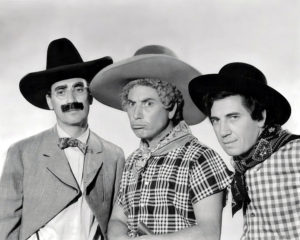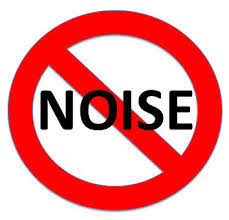
To call Donald Trump a racist, or a bigot, a misogynist, is not an insult. It’s a ticket to the maelstrom of drama he likes to create. My notes on this aspect of Trumpism go back to spring ’16. The noise since has been constant and deafening. When I started the actual writing of this chapter, the US president was still reveling in the ruckus generated by his alleged use of a barnyard expression to describe countries in Africa, or was it just Haiti? Or was it the Russian scandal? The planet joined in the chorus of outrage, legitimately criticizing this crude and undiplomatic generalization, and so the USA took another step into the isolation chamber, which has been ready and waiting since November 2016.
Did he say it? Did he not say it? Did he say something similar? Were there some nefarious goings-on with Russia? Who cares: Writing about Trump is an inevitability. Alas, because he is actually the elephant (well, pun intended) in the room, the bull in the china shop, he is that 12-year-old troublemaker in the classroom who refuses to obey any rules, but whose parents think that he is just great and needs no disciplining whatsoever, because, well, he’s their kid. Nevertheless, he is the president of the USA and the leader of what is supposed to be the most powerful nation on Earth. That image has been seriously tarnished, though for Trump, there is no bad image, apparently.
Summing up
Snapshot: After “shithole” came more honking horns, porn-star pay-offs, with sordid details to excite the plebs and keep the so-called “left” or the #Resistance outraged and very occupied on the Tweet-channel. And then the really exciting theater of the Government Shutdown, with clanging bells and shrieking whistles… All this putting paid to the previous high: Wolfe’s Fast and Furious, the kind-of kiss-and-tell report from behind the scenes that could have used some audio tape to prove itself accurate. I’m a little skeptical. But, as attention waned and fresh salvos of outrage covered up new salvos of bull, Wolfe came back with some saucier stuff yet, rumors of whoopee in the White House, which these days exudes a sort of pressure-cooker, lugubrious aura, a little like Sara Huckabee Sanders’s delivery.

Less there than meets the eye
The huge community of observers and spectators would rather not discuss such sordid stuff, but it’s ubiquitous and inevitable. It gets thrown at us and sticks, at least with a critical mass of audience. And VIPs are in on the game, with clips that in perfect prurient-puritanical style — always suggesting, never delivering — come millimeters away from pornography, sort of like Jane Russell’s famous bra designed by Howard Hughes. And now, no one is allowed to criticize without the ochlocracy descending upon them and casting them into a labeling prison. You are X, because you criticized Y.
The tough job of content verification eludes us all, because of the sheer mass of material, its information flimsiness, and because as soon as one scandal or absurdity or outrageous comment/tweet breaks and becomes amplified through social and news media, the next one is already in the making. Parsing and dissecting the content of the first no longer makes any sense. In-boxes are full, there are hundreds of post-its stuck on your wall with refuting arguments and esoteric notes, you are exhausted by the need to earn a living in addition to dealing with the tsunami of nonsense. Thankfully, the Internet also provides some relief in clips of cats giving massages, silly accidents people suffer, fake moments of great humanity. It’s real and unreal, it just seems to be real, and that’s enough.
The Big Media, for their part, forced to fill twenty-four hours year-round with content, go the path of least resistance, of course, outrage makes it to the forefront, be it a some blatant lie about voter fraud, or a Kansan candidate insulting working women by calling them “banshees,” or some outrageous statement about alternative facts, the un-word of the year 2017 in my books. It can be the 1/10th of a second of Janet Jackson’s breast, or some evangelical fraud promoting the end of the world on a certain date. And so Trump, by hook or by crook, manages to elbow his way to the top rank of the news cycle, and so the gatekeepers (the editors) feel compelled to fill the airwaves with infantile tweets and the fawning and braying of his surrogates. It’s also an economic issue: This is cheap raw material.
What appears on TV (I’ve watched many clips, meanwhile) and on social media are not debates. They are futile and uninspiring hollering matches. On one side are the talking heads, who are preaching to one choir. On the other side there are the individuals who are quite willing to boost the president’s anti-everything agenda, to defend what appear to be random, spontaneous, incoherent thoughts.
There are rumors out there. Some say he is mad. Some say he is a narcissist. A psychopath. Egocentric and dishonest, yes, there can be no doubt about it, but his cult-like followers don’t care. He is also a liar, but not – crucial distinction – pathological. Because providing content is not the point of Donald Trump’s utterances, be they tweets or strange statements, from the Birther nonsense, to the hallucination about five million fraudulent voters (that created a Lieutenant Kije-like situation of people chasing after them, knowing they did not exist…). He is indifferent to the truth, because it’s not the point of his utterances.


A look back
At some point in the first half of 2016, while Trump was racing from outrageous statement to outrageous statement and tearing through his rivals for the GOP nomination, I noted that if the eye of the camera or the ear of a microphone would veer away from him, as it should have, Donald Trump would pull down his trousers and defecate on the stage just to regain the upper ground in the attention economy. It was only a partially flippant comment, logged anonymously on some forum or other, I believe, but Trump did prove it correct by stating he could shoot someone on Fifth Avenue, probably a subliminal thought of his, and not lose any support. And he was right.
Trump has picked up on something fundamental about communication in the USA, and the world of today, something that is not entirely new, but has been boosted by the information rockets. First, there is no negative feedback in media matters. To misquote Marshal McLuhan, the media themselves are the massage. No typos there. Or, as the Germans would say about a great event: Dabei sein ist alles. The main thing is to be involved. This is key to understanding how mass communication works. This pattern was set by the likes of Coughlin in the 30s, already, Amy McPherson in the 20s, Billy Sunday before that, or Joe McCarthy in the 50s, Rush Limbaugh, Glenn Beck, Sarah Palin (a pre-Trump Trump in female), and the unspeakable attention chihuahua Milo, whose defense of pedophilia checked his rising alt-right star, but paved the way to many Alabaman Evangelicals accepting Roy Moore, I would argue.

Secondly, people almost expect big and loud stuff by now. In fact, a diet of Hollywood films and overacted series have literally trained them for it. Loud candidates are a necessity to avoid boredom setting in. There are many things that lost the 2016 election for the Democrats, but one of them was the whole “we go high, they go low” command, which put paid to any real, gut-wrenching fanfares from the Hillary campaign. The Dems came with white gloves and silver spoons to a hotdog-eating contest. There was some push-back, but it remained fairly mild. Her running mate, Kaine, daubed Twitter a bit, but didn’t get his delicate rhetoric soiled by harshness. I guess they realized that the “deplorables” comment was already too much. And it may have been, especially the polite “Oh, I am really sorry, I didn’t mean it…” But that is another story.
The irresistible vortex
The Trump camp understood and understands its base well. It’s made up in great part of people with little inclination to engage in long and convoluted discussions about policy. “Build the wall,” “Maga,” “Lock her up.” Fantasies about the old American can-do spirit and the Wild West, hang’em high, and constitutional rights be damned. Except for 2A. It’s understandably refreshing for many, and probably would be for a majority if Trump had made a genuine effort to bring the country together after such a sordid, acrimonious campaign of conspiracy theories and divisiveness, and having clearly lost the popular vote. The traditional “We are all Americans” speech was replaced with “This country is a horror show! I am the greatest, best, biggest.” The nation was screaming for healing. But instead, Trump continued campaigning, cutting the nation in two, re-heating the civil war, essentially. He dragged the most abominable anti-administration together, placing total ignoramuses or deep-swamp creatures at the head of government agencies (DeVos? Perry? Pruitt? Mnuchin? Is he kidding?) and filled the White House with weird ideologues like Miller and Bannon, or bloviating frauds like Dr. Sebastian Gorka.

Trump may be a racist, but that is not really important. He doesn’t care enough about others to be a raving KKK member. He does use what I’d call crypto-racism, however, as a tool to needle and divide, and therefore keep everyone on tenterhooks. The immediate impact of this tactic has been devastating and physical. People are screaming and hollering at each other across the information highways more than ever. There is very little space for compromise or reasoned discourse. The exchanges are exhausting, and yet, people are driven over and over again to fora, to Twitter, to Facebook, Instagram for more of the same. There seems to be some deep-seated pleasure in going to those places, where one can freely talk, shout, snark, retaliate…. The name of the game (and the Trump Team is not the only player): brain-hacking. Anger, pleasure, raw emotion, sentimentality have become an addiction in a cold and lonely digital world, in which 99.999% of people are not heard or really seen. Andrew Keen, in his The Internet is not the Answer, notes this the bizarre one-way communication between the plebs and the celebrities.
So: If we do not find our inner self when we’re off line, it’s like being in solitary confinement in the middle of a bustling market.
PART II
The prophets
“People don’t find what they desire, they desire what they find.” This brief quote by French social critic, philosopher and filmmaker, founder of the Situationist movement, Guy Debord, pithily describes the technological alienation combined with the dopamine-driven addiction to the social noise-media.

To call Debord (1931-1994) a prophet is not entirely fair to the densely populated line of thinkers upon whose shoulders he stands, or who were contemporaries in their criticism of society. Let us note Theodor W. Adorno, whose Minima Moralia is structured almost in the same manner as Debord’s seminal work; La société du spectacle (The Society Of Spectacle) is a collection of 221 statements/theses. The title alone, though, begs for our attention, for everything is spectacle… But it gets worse: The definition of spectacle is not just the visible excitement of the media. According to one commentator, Yann Kerninon, it combines information (propaganda) to maintain the illusion of capitalism as the best and only form of society (some will say that it is the best we know); advertising that not only makes us consume, but aims to convince people that buying a product or service will make them better than the next (hence, for example, the proliferation of ridiculously aggressive cars in all vehicle classes), and finally entertainment, so that we can forget that this spectacular society is actually boring. The pop music industry is built upon this premise, but so is the new “populism,” or neo-Fascism, to avoid silly euphemisms. (Cf. either Debord’s original book, or any number of documents or documentaries like this one in French on the You Tube).
In an Op-Ed in the New York Times in February 2017, Robert Zaretsky, professor of French History at the University of Huston, tried to narrow down Debord’s idea of spectacle as being “… everything that men and women once experienced directly — our ties to the natural and social worlds — was being mulched, masticated and made over into images. And the pixels had become the stuff of our very lives, in which we had relegated ourselves to the role of walk-ons.” Imagine being in a theater as a spectator and actor at the same time. “The spectacle is the uninterrupted discourse that the current order is delivering on itself, its own monologue of praise,” wrote Debord in his 24th little thesis. “It is the self-portrait of power-that-is at the moment of its totalitarian management of the conditions of existence.”

The real issue, already in Debord’s time, is that the omnipresence of spectacle means that the willing players no longer find refuge in the private sphere. “The spectacle is the nightmare of a fettered modern society, which ultimately is only expressing its longing for sleep,” wrote Debord, nailing one of the core problems of our society, which has gotten far worse: the frenetic pace, the ubiquity of work, with technology that is sold as a way for individuals to be free of the office, for example, by recreating the office on a tropical beach thanks to mobile devices. The technology has literally become a drug. People used to walk and smoke a cigarette, chat with friends, meditate a bit. Today, they walk, cycle, drive while staring at a small rectangular screen, and communication with some distant entity, human or digital, has become the shot, the cocktail, the line of virtual coke keeping us excited whether in anger or joy, in the unsatisfying delight of revenge and schadenfreude. So “debating” has become a cheap, unreal bullfight of sorts, with everyone participating has an “Olé!” to say, even, ironically, when they say nothing, which can be felt as a digital version of passive aggression.


Donald Trump barged into that field with skillful cloddishness. He plays the part of the boor, because he is one in essence, an uncouth, lazy, lowbrow predator, a TV windbag, who has adopted some rhetorical techniques from televangelists. The more he pretends to be a victim of the MSM that fights back, echoing the plight of hundreds of film heroes winning against absurd odds, the more his base identifies with him, even if they know they are being tricked. But the #Resistance has also been caught up in the game: love or hate, you’re still connected. (It’s a topic related to religious yearnings in the USA and needs to be treated at another time, as it would go well beyond the framework of this article).
The Trump Train chugging down the track of history, spreading an unbelievable amount of strange fumes, has become an ineluctable element in everyone’s lives. It is like a TV series with very short, absurd episodes (sex issues, racist explosions, conspiracies, even typos!) that fascinate and distract, like watching a garbage tip slowly take over your physical and mental living space. You can’t ignore it though, because it has a life of its own. Democracy, for what it’s worth, is on the line.
Getting back to Debord, though, let me quote a paragraph by Zaretsky in the op-ed mentioned above:
In Debord’s notions of “unanswerable lies,” when “truth has almost everywhere ceased to exist or, at best, has been reduced to pure hypothesis,” and the “outlawing of history,” when knowledge of the past has been submerged under “the ceaseless circulation of information, always returning to the same list of trivialities,” we find keys to the rise of trutherism as well as Trumpism.

This spectacle is made all the more exciting and exhausting by the Internet. Thanks to the reactivity of its denizen and the web’s gift of easy and cheap access to a large audience, the spectacle has gone into overdrive. Trump keeps his foot on the pedal, safe in the knowledge that he’ll be tracked by devotees and detractors alike, and that this noise will cover up whatever America’s current powers-that-be have in mind for the country. For the moment, it looks like turning the clock back to pre-FDR days, an old GOP dream.
As for Trump’s own expressed outrage, it is about as real as the rants and raves of an Alex Jones or a Rush Limbaugh, in other words, fake. It must be fake, because either these carnival barkers are imbeciles or they are propagandists who knowingly invent, lie, or reconnect dots in a silly manner that defies logic. It’s always good to remember, though, that they are essentially in a business that sells outrage-causing babble to the public in return for fame and hence advertising dollars. This spectacle earns and earns, and will continue earning as long as people do not switch off and advertisers, who according to Debord and others are liars, who replace a lie with a lie, thus proving the first lie, keep the funds coming. The problem is that it only takes a fairly low critical mass of people to legitimize even the most abstruse stuff…

 The wrap
The wrap
So “shithole” is just an episode, and like the entire immigration spectacle, the shutdown, even now as I write, Davos, and maybe even the Mueller probe (a case that could be an extreme form of expectations management), are part of the soundtrack that has accompanied Trump during and after his election. For him, the technique to keep the hollering on full volume is simple: Always deny what was said or “pivot,” to use a new word. Throw ’em a bone of contention. Whether the issue will be solved is irrelevant. The alleged statement – whether it be shithole, shithouse, or simply a heap of unsavory, vulgar prattle, whether he wanted to fire Mueller or not, whether there were five million fraudulent voters, whether Obama tapped Trump Tower, or not, is irrelevant – drew myriad pens, cameras and keyboards in its wake, including mine, Trump and his administration simply continue implementing an agenda that seems geared towards the economic wishes of the very few to the long-term detriment of the many, even if that includes isolating the country, ripping into the environment, poisoning rivers with mine slag. Whatever. It’s carpetbaggin’ time.
Zaretsky is an optimist, he sees a solution in the marches, in the “return to local politics and community organizing” as a successful redux of 1968, a time of turmoil that the Situationists were in fact involved in in France. I tend to agree on good days. In the 60s and 70s, there was a return to simpler lives, communal living out in the country, where one could find cheaper and maybe healthier living conditions. The sharing society could go in this direction (without the exodus) and make for a stable society without any upheavals. (There is a very strong cooperative movement in many European towns spawned by excessive rents and greedy, ineffective housing administrators who usually try to extract maximum profits by minimum investments, This coop movement is branching out into many areas of society and could become a powerful “Third Way”).
Another possibility is simply withdrawal and political apathy due to exhaustion. But there is one path with its own dark logic open to this frenetic society that is increasingly in need of dopamine-driven recognition, and it is the kind of spiritual apotheosis one finds in the ultimate spectacle, the spectacular destruction of war, in some ways, the only path to resetting the clocks, to rediscovering the ancient feeling of social cohesion for survival, the way back to the lizard brain, if you will. It is also the reason why we, as audience, tend to be stuck in the exhausting one-way relationship with the Trump’s of today: If the tweets don’t draw the ire or love, war becomes the ultimate attention-getter. Thanks to the Internet and the addiction to the spectacle, we are in a perniciously fusional relationship with power.

For the moment, extricating oneself from the spectacle is simply hard. The news media are part of the problem, but by force: Their business and job is to report stuff, so they can hardly avoid talking about the most immediate stuff, even it be a glittering turd. They can’t really pretend Donald Trump is not tweeting nonsense, so they cover and comment, and then get attacked for doing so, which generates more spectacle. Curiously, a few anchors (Jake Tapper, notably, with that bizarre White House creature Stephen Miller) recently had the courage to tell fawning Trump surrogates to stop wasting the viewers’ time with their zero-information rambling and fawning. While it caused a stir, due to more Tweeting episodes, one could almost feel the relief of Tapper (and Don Lemon) for having shut the noise out for a bit. To achieve some form of inner peace and contentment, though, we may have to shut everything down and improve our closest proximity. For after all, that is the only area in which we, as individuals, can have an impact. And that may come with a return to ancient wisdoms. Voltaire’s Candide saying “Il faut cultiver son jardin,” or better, Blaise Pascal’s “pensée”: “All of humans’ unhappiness comes from a single thing, namely not being able to stay at rest in a room.”
Thank you for reading this far.

[contact-form][contact-field label=”Name” type=”name” required=”true” /][contact-field label=”Email” type=”email” required=”true” /][contact-field label=”Website” type=”url” /][contact-field label=”Message” type=”textarea” /][/contact-form]


